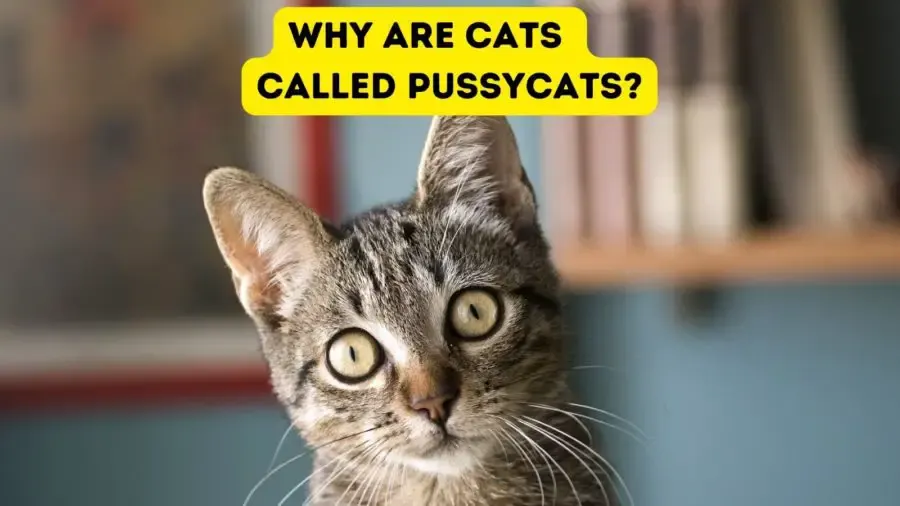In the fascinating world of linguistics, tracing the etymology of words often unveils a rich tapestry of cultural history and evolution. If you are wondering why are cats called pussycats, join us as we unravel the fascinating journey of this endearing nickname, tracing its history back through through multiple countries to become the commonly-used term of today.

The Origin of Pussycat
Like many aspects of our dear cats, the origin of pussycat remains a bit of a mystery! The complex linguistic history of the term has more than one possible explanation. Let’s break it down:
Why are Cats Called Puss?
This word is quite ancient in the English language, used to refer to a cat. Its origin seems to be from the French word “puss,” which is a call name to attract a cat, similar to “kitty.”
This term could be derived from the Latin pusillus meaning small, little. It may also have connections to similar words in other languages.
Or the term “puss” could be traced back to the Old Norse word pūss, which is a term of endearment used for a kitten or a cat.
Over time, the word might have transitioned into Middle English and then modern English, retaining its original meaning.
This Norse origin seems to be corroborated by similar words in other Germanic languages – for instance, the Swedish and Danish word pus, and the Low German puus, which are also used to refer to a cat.
Why are Cats Called Pussy?
This is an affectionate term for a cat that is derived from the word “puss.” It is believed that adding the “y” might have been an attempt to make the word sound more diminutive and affectionate, which is a common linguistic practice.
Pussycat
The term “pussycat” appears to simply combine “pussy” with “cat,” possibly for rhythmic or rhyming reasons, or to create a term of endearment. It has been used in nursery rhymes, songs, and other literature, which helped it to gain popularity and stay in the common lexicon.
Where is the Term Pussycat Most Commonly Used?
The term “pussycat” is most commonly used in English-speaking countries, and its usage might vary greatly between regions. Here is a brief overview of its prevalence in various parts of the world:
- United Kingdom: The term is quite common in the UK and has been used traditionally in nursery rhymes and literature. Along with pussycat, the term moggie is also popularly used in the UK, especially to refer to mixed breed cats.
- United States: In the US, the term is also well known, partly due to its usage in popular culture, including songs, movies, and television shows. It is often found in children’s literature and rhymes as well. Kitty is more popularly used than pussycat in the US.
- Australia and New Zealand: In these countries, English retains many traditional forms and terms, and “pussycat” is a term that is still in use, especially in a more affectionate or traditional context.
While the term “pussycat” can be found in various English-speaking regions, it might be perceived as a somewhat old-fashioned or affectionate term, rather than the more straightforward “cat” or “kitty.” It’s also notable in popular culture through works such as the nursery rhyme “Pussycat, Pussycat, Where Have You Been?” and the American girl group “The Pussycat Dolls” much later on.
More Posts You Might Like
- 🎉 GIVEAWAY: Lord of the Pets Portrait of Your Cat! - November 26, 2024
- Review: Lord of the Pets Cat Portraits! - November 26, 2024
- Cat Adoption: FAQ You Might Have - June 28, 2024
